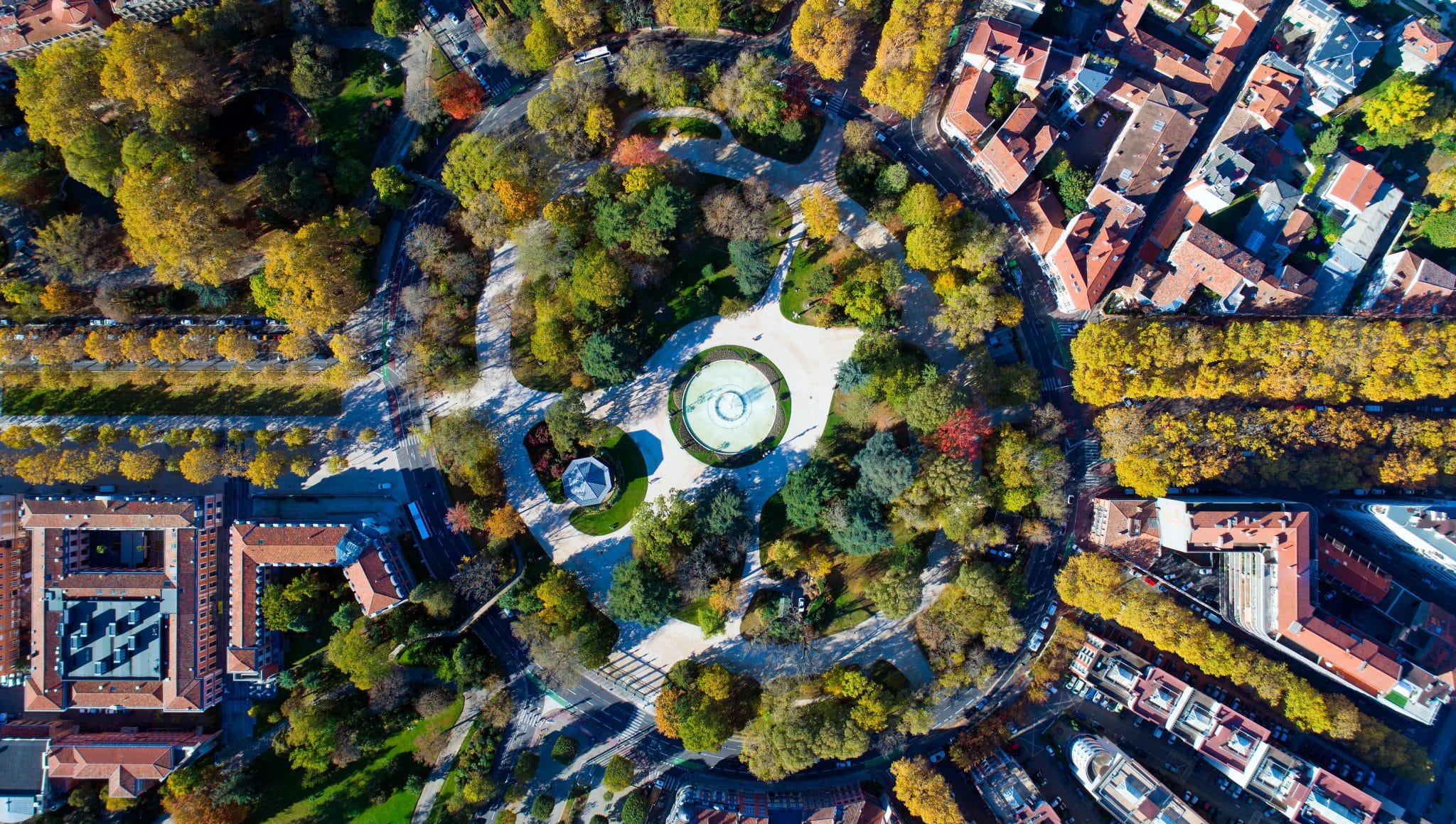European Cities are learning together how to achieve climate neutrality by 2030

Climate KIC leads the NetZeroCities Pilot Cities Programme, currently supporting over 50 European cities in their quest for climate neutrality by 2030, as part of the EU Cities Mission. This two-year initiative provides funding, support, and training to a diversity of cities, facilitating collective learning experiences. Participating cities identify emissions sources, develop plans for mitigation and explore diverse solutions.
The Pilot Cities Programme provides participating cities with funding and support from Climate KIC through the NetZeroCities platform. Amsterdam, Madrid, Rome and Warsaw are among the 53 cities participating in the Pilot City Programme.
Some cities have applied as multi-city Pilots; German, Dutch, Italian, Spanish, Slovenian, and Polish cities have applied in groups in an effort to ramp up their collaboration. Most cities have applied on their own but will go through the programme together as a cohort. Along the way they are collectively challenged to understand the role a city can take in its journey to climate neutrality.
Over two years, they will receive capacity-building training and support from dedicated city experts. This will help them identify the source of their main emissions and map out potential solutions that should lead to emissions mitigation.
Galway, for example, will focus on retrofitting private homes in a decarbonisation area. Liberec and Guimarães are setting up energy communities to test out a range of solutions from transport and energy consumption in buildings to improved waste management. The Swedish city of Uppsala will focus on the local circular economy by improving material flows, especially in the building sector. Polish cities are working together to develop retrofitting digital solutions that will be scalable to other cities in Poland and beyond.
Learning how to reach climate neutrality
We know where we need to be in 2030 but we don’t know where we are right now is a sentiment that echoed through a recent collective sensemaking session with pilot city representatives.
The approach the programme takes is about exploring different pathways and understanding how local ecosystems work so that cities can have more clarity on how to deliver the desired changes. Through it, cities aim to set up new services or entities, conceive of new tools to aid decarbonisation, or set up local projects.
The programme can be thought of as a testing ground where participants explore how their cities can learn and practice systems change, all the while exchanging with and learning from their pilot city ‘colleagues’.
Cities have already taken part in learning activities offered by the programme. From some of these early sessions, similarities have begun to emerge. The need to define what role a city administration should be playing in the transition, the need for good practices that will boost citizen involvement and the difficulty in identifying and engaging the right stakeholders that should be involved in the climate transition as partners are some of the recurring themes.
“The goal of this process is that cities are able to use all of their findings to ultimately guide their decision making, guide their investments, and involve a wider audience, be it citizens or communities, but also more importantly the decision makers and politicians who influence those processes they are trying to change,” says Nikhil Chaudhary, Strategic Learning Lead in NetZeroCities.
Collaboration for transformation
In the spirit of being a space for participating cities to practise on the ground approaches to systems change, the programme provides a deep learning syllabus, including boot camps, summer and winter schools, peer learning and sensemaking sessions. Through these, cities generate key insights about how change is happening, what can be extracted from this and applied more broadly, and in turn build capability and capacity for the work of systemic change across the entire city. In addition, as cities learn what works (and what doesn’t) in their context, these innovative pathways they are experimenting with can then be scaled and replicated by other cities, thereby maximising the reach and impact of their work, and the wider Pilot Cities Programme.
There are no predetermined solutions to systems interventions, and many unforeseen challenges will emerge along the process. This part of the programme provides cities with tools to address these through guided and continuous learning opportunities, so that plans can be adapted over time.
The sensemaking process provides a secure environment for cities to not only showcase their successful stories but also openly share their challenges, enabling the extraction of valuable insights that inform future steps and potentially allow cities to develop blueprints from the relevant experiences of others.
City representatives are finding it challenging to move from a point where everyone is looking mostly to the city administration to take the first step. Through this process, the aim is to work towards an environment where everyone feels empowered to take ownership of the transition.
There are certainly local specificities, such as the political landscape, funding and resources, and the level of autonomy cities have, but many cities have challenges in common.
The Pilot Cities Programme will help cities work together on transformational pathways to climate neutrality, bring the necessary actors into the process, generate a sense of common ownership in the climate transition, and tangibly raise the quality of life in their cities. Their experiences will also be shared with Twin Cities.
As the two-year programme progresses, cities will increasingly consider the replication and scaling potential of their pilots. They’ll feed what they’ve learnt to Mission Cities and other cities in Europe and beyond that may face similar challenges. Their experiences will provide opportunities for others to follow suit, replicating or scaling approaches and solutions appropriate to their context. For most cities, this will likely involve fundamentally changing the way they work and how actors collaborate.
